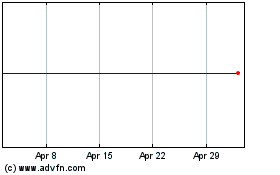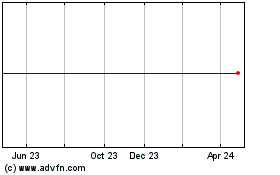By Betsy Morris and Robert McMillan
China has been buying up ads on U.S. social-media sites and
adopting online tactics reminiscent of Russian disinformation
campaigns in an apparent attempt to shape the story internationally
about the coronavirus response, according to researchers analyzing
the activity.
The efforts include ad purchases on Facebook Inc. promoting the
English-language arms of Chinese state-media outlets, as well as
posts there and on Twitter Inc.'s platform that in some cases
disparage U.S. efforts to fight the global pandemic, the
researchers say.
From mid-February until early March, social-media sites linked
to Chinese state media posted more than 3,300 times a day, triple
the normal rate, according to Recorded Future, a Somerville,
Mass.-based cybersecurity consulting firm. Those outlets were
principally active on Facebook and Twitter, the research
showed.
The Chinese tweets, researchers say, evoke Russia's tactics,
which involved spreading messages that can incite doubt and stir
anger about basic facts and sometimes promote fictitious claims.
Russia also leaned heavily on state media to spread its message
online.
The Chinese Foreign Ministry didn't respond to a request for
comment, and Russia has denied spreading disinformation.
The Chinese ad spending accelerates a broader social-media
effort -- which got a boost during last year's Hong Kong protests
-- to shape opinion about China in the English-speaking world,
researchers said.
China has bought more than 200 political ads on Facebook since
the end of 2018, but more than a third have been purchased in the
past two months, said Vanessa Molter, a researcher at the Stanford
Internet Observatory, a cyber-policy institute. Most of the recent
ads focused on trying to shape global perception around China's
handling of the coronavirus outbreak, she said.
Ms. Molter said China's state-media political advertising on
Facebook has drawn as many as 109 million views over the past 14
months, about 45 million of them since Feb. 15. That reach is far
larger than the estimated 40 million impressions that Stanford says
Russia's Internet Research Agency obtained in its disinformation
operations around the 2016 U.S. presidential election.
As recently as Sunday, China Plus News, an English-language
website operated by state-run China Radio International, was
running ads promoting a podcast entitled "Coronavirus: What's
Really Going On." The podcast, which began airing regular episodes
on March 8, features information and opinions on the coronavirus
pandemic, offered from China's perspective.
In one episode, the podcast states that none of the 42,000
medical workers operating in Hubei Province to combat the pandemic
was infected with the virus. That health claim contradicts The Wall
Street Journal's reporting, which found medical workers in China
were infected because they lacked proper gear and training.
China's political ads by state media should be banned, said Alex
Stamos, former Facebook chief security officer and director of the
Stanford Internet Observatory.
Facebook in October pledged to start labeling posts by state-run
media on its platform early this year but hasn't. A company
spokeswoman said "given state-controlled media uses the backing of
a government to drive opinion, we remain committed to labeling
these pages." She wouldn't say when the company would take the
action. Twitter has banned advertising by state-run media, though
it still allows these entities to post on its platform.
"I think this pandemic is a seminal moment" in China's
image-building effort, said Priscilla Moriuchi, senior principal
researcher at Recorded Future. China, she said, is using the crisis
to portray itself as a global humanitarian leader more capable than
the U.S.
China, which has banned Twitter domestically, has more than
tripled accounts on the platform for government officials to 125
from a year ago, said the Alliance for Securing Democracy, a
not-for-profit research group that is part of the German Marshall
Fund think tank. Three-quarters of the new accounts have been
created since September, the group said.
On March 12, China Foreign Ministry spokesman Zhao Lijian
floated the theory that the coronavirus may have been created by
the U.S. Army. The U.S. military described that charge as "false
& absurd."
On March 21, Mr. Zhao retweeted a message written by a Twitter
user named The Lizard King, suggesting the coronavirus had been in
the U.S. during the Christmas holidays. The tweet's author was
Beatrice Ottomanelli, a 24-year-old grant writer living in
Melbourne, Fla., who had about 500 followers before the
message.
The somewhat random thought occurred to her when she was
reflecting on advice doctors had given her to protect her infant
son during last fall's flu season, she later said, adding that her
tweet was retweeted about 10,000 times within a few hours after
being posted on March 14. A week later, the response was amplified
after it was retweeted by Mr. Zhao, someone she hadn't heard of
before.
"I gained a whole lot of Chinese followers," Ms. Ottomanelli
said, helping quintuple her following. "They're all very nice, but
that was not my target audience."
Representatives of the Chinese government didn't respond to a
request for comment about Mr. Zhao's tweets, and Mr. Zhao couldn't
be reached for comment directly.
A Twitter spokesman said all accounts must abide by its rules,
which are designed to prevent harm but don't prohibit "foreign
policy saber-rattling on economic or military issues." As the
pandemic evolves, Twitter wants "to create a public record, to
offer people more context on what their leaders are saying, and to
ensure they are able to hold their behavior to account," the
spokesman said.
Secretary of State Mike Pompeo has taken to Twitter to accuse
China, as well as Russia and Iran, of spreading disinformation.
Iran's Supreme Leader Ayatollah Ali Khamenei, on Twitter, said
the outbreak might have been a U.S. biological-weapons attack. A
European Union report found pro-Kremlin media were spreading
messages aimed at undermining public trust in national health-care
systems in Europe and suggesting that the Covid-19 virus was
weaponized by the West. The Russian government denies it is
spreading disinformation and called the EU report baseless and
driven by Russiaphobia.
China's messaging could undermine U.S. influence, particularly
in Eastern Europe, Africa and Southeast Asia, said Clint Watts,
research fellow at the Foreign Policy Research Institute, a
Philadelphia-based think tank. Conspiracy theories China has been
advancing, he said, are likely to be amplified by Russia and
Iran.
Those might not resonate in the U.S., he said, but "in the rest
of the world, the more you hear it the more you believe it."
Write to Betsy Morris at betsy.morris@wsj.com and Robert
McMillan at Robert.Mcmillan@wsj.com
(END) Dow Jones Newswires
April 10, 2020 07:14 ET (11:14 GMT)
Copyright (c) 2020 Dow Jones & Company, Inc.
Twitter (NYSE:TWTR)
Historical Stock Chart
From Mar 2024 to Apr 2024

Twitter (NYSE:TWTR)
Historical Stock Chart
From Apr 2023 to Apr 2024
